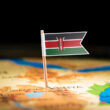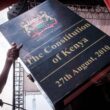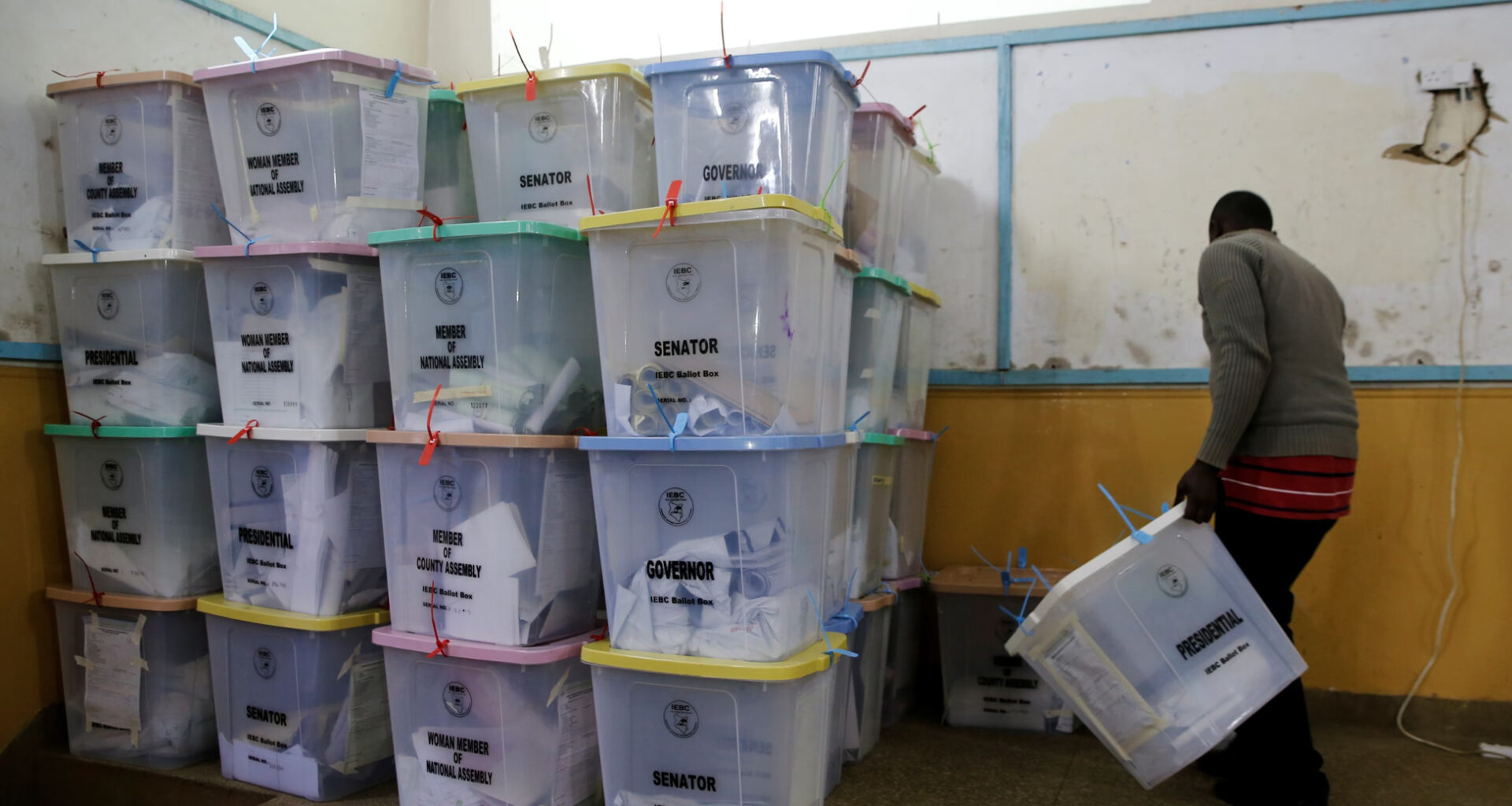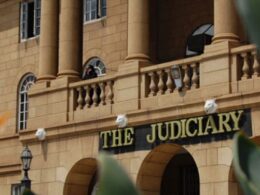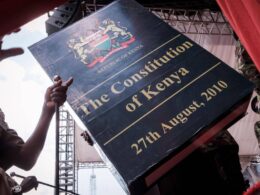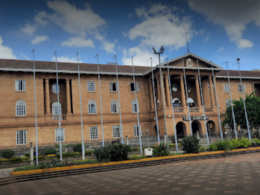By Beverline Anyango Ongaro
Over the years, Kenyan youths have been urged to take charge of their destiny by participating in the electoral processes. These discourses have been charged up, but sometimes, the youth’s critique of or demands for better electoral processes have been censured with John Kennedy’s famous quote, ‘Ask not what your country will do for you but ask what you can do for your country.’
In other times, the youth have been faulted for their indifference and allowing themselves to be used without interrogating the structural and systematic barriers and challenges they contend with in socio-economic and political spheres. However, these censures are pointless if they do not respond to how we see Kenya’s best or worst from the lens of the youth.
Against this backdrop, it is imperative to focus on the obligations of duty-bearers to respect, protect, and promote the youth’s political rights alongside the clarion call for them to arise and seize political space- so that this clarion call makes sense.
Youth is a period of transition from dependence to autonomy. The Kenyan constitution defines youth as persons between 18 and 35 years and who, according to the Kenya Demographic Health Survey 2019, comprise 75 per cent of the Kenyan population. They are a critical bloc that cannot be ignored in the electoral processes and general Kenyan political dynamics.
However, facts indicate that their participation in these processes has been minimal due to various reasons leading to apathy. This was evident in the recently concluded second national enhanced continuous voter registration exercise by the Independent Electoral Boundaries Commission (IEBC) in February 2022. They got only 22 per cent of their target, with a majority of eligible youth shunning the exercise.
And while the number of youth leaders elected at the national and county levels increased in the 2017 than 2007 elections, they remain under-represented in the political sphere. Currently, youth constitute only 6.5 per cent of the 12th Parliament-both Senate and National Assembly, and19 per cent in the county assemblies – 281 men and 24 women of the 1450 elected members.
Notwithstanding this low representation, research by the Carter Centre revealed that youth leaders comprehend and respond to the distinct concerns of the youth. This makes a strong case for safeguarding and promoting youth to exercise their political rights during the current electoral period. What exactly then needs to be done?
Addressing injustices
Foremost is to address historical and persistent social, economic, and political injustices that remain an outstanding obligation of the State.
The holistic four-point agenda established after 2007/08 for socio-economic and political reforms by the Kenya National Dialogue and Reconciliation attest to the strong correlation between socio-economic emancipation and robust political participation.
The majority of first-time youth voters have experienced or witnessed human rights violations and continued impunity due to the absence of adequate remedies. For instance, today’s 19-year-olds who were five during the 2007/08-post election violence are yet to witness social, economic and legal reparations for their guardians, as provided in various reports, including the Truth, Justice, and Reconciliation Commission.
We cannot underestimate the impact of these historic traumas on their perception and determination of nationhood as envisaged in our national anthem. Given that elections are a necessary means of instituting and implementing inclusive and sound transformative social and economic policies, in the absence of these, it is rather unpersuasive for youth to participate in the electoral process. Nevertheless, there are still opportunities for youth to participate in other electoral processes.
Participation in political parties
According to the Office of the Registrar of Political Parties (ORPP) 2022 data, youth constitute only 35% of political parties’ membership. Albeit this forlorn youth representation, the fact is that only political party membership gives them legitimacy to participate in elections and receive funds under the Political Parties Act No. 11 of 2011.
Therefore, the obligation to enhance youth’s meaningful participation within political parties cannot be gainsaid, as candidacy through political parties remains the preferred avenue for contesting elections.
According to the ORPP and IEBC 2022 electoral calendars, parties must submit their membership lists by 26th March and 9th April. These lists ought to be representative of age and gender. This is one avenue through which youth can exercise their political right by registering as members of political parties and participating in their primaries as either voters or aspirants in the nominations.
The ORPP has established an easy digital registration mechanism in a positive step. A person dials *509# on their mobile phone and follows the instructions for registering or deregistering from a political party.
Fair nomination process
The obligation to ensure free and fair nomination processes is one of the possible ways of implementing Article 55 (b) of the Constitution of Kenya. Under this Article, the State is obligated to take steps, including affirmative action, to ensure youth have opportunities to associate, be represented and participate in the political sphere of life. The nomination process determines whether a person will clinch a Parliament and County Assemblies position.
Under the auspices of the governing board, political party election boards undertake nominations. Section 38A of the Political Parties Act stipulates indirect or direct party nominations. In a progressive step, the 2022 amendment of section 25(2) (b) of the Political Parties Act 2011 excludes political parties whose governing bodies lack representation of special interest groups that include youth. Apart from youth leagues, these political party governing bodies are avenues that the youth can participate in to contribute meaningfully to the nomination process.
Cost of participating in electoral processes
As part of generating income, Political parties levy fees on their aspiring candidates. Section 14(2) of the Elections (Party Primaries and Party Lists) Regulations, 2017 mandates political parties to inform members about the fees at least two weeks before party primaries or nomination of the party lists.
A cursory glance at ten major political parties’ constitutions and nomination rules reveals they have graduated fees for youth that range from half or a third payable fee compared to other candidates. While this is a positive move, the setback is that the fees are not refundable, and there is no restriction on the arbitrary increase of their fees. During the 2017 electoral period, some political parties raised their nomination fees to limit the number of candidates, albeit bitter complaints by its members that the fees were prohibitive.
Apart from nomination fees, contesting in primaries and general elections is expensive. Research by the Netherlands Institute for Multiparty Democracy on the Cost of Politics in Kenya: Implications for Political Participation and Development revealed the lowest cost of contesting in an election is Kshs. 3.1 million (USD 31000). A significant driver of this high cost is the failure to operationalise and enforces the Campaign Finance Act No. 42 of 2013.
The obligation to ensure the costs of political participation throughout electoral processes are rational and reasonable is another possible way of implementing Article 55 (b) of the Constitution of Kenya. There is a strong correlation between election financing and the exercise of youth’s political rights within political parties. This is especially due to the socio-economic vulnerabilities of the youth that the COVID-19 impacts have further aggravated. Otherwise, few will run for elections in 2022.
Access to justice
The obligation to enhance access to justice is the linchpin to enhanced youth participation in electoral processes. Section 38 B (a) of the Political Parties (Amendment) Act 2021 obligates political parties to establish a mechanism to resolve disputes arising out of the nominations.
Consequently, most political parties’ constitutions require their aggrieved members to exhaust their internal party dispute resolution mechanisms before appealing to the Political Parties Dispute Tribunal established under Section 39(1) of the Political Parties Act 2011. The political parties’ national executive committee appoints the independent internal dispute resolutions board/panel. These boards/panels are avenues through which youth can participate meaningfully in political party structures.
Nevertheless, there are two outstanding concerns even with these established dispute resolution structures. Firstly, the fees payable by appellants to their internal dispute resolution bodies are prohibitive to youth as they range from Kshs. 10,000 to Kshs. 25,000 for primary tribunals and Kshs. 30,000 to Kshs. 70,000 for appellate tribunals within the parties.
Secondly, for the upcoming election, the deadline for the conclusion of party nominations is 22nd April 2022. This date coincides with the resolution of intra-party disputes arising out of political party nominations. Scheduling the deadlines on the same day is dicey given the experience of some parties conducting nominations on the deadline, depriving aggrieved candidates of legal recourse within their parties.
For instance, in 2017, the Kenya National Commission on Human Rights (KNCHR) documented incidences during political parties’ primaries. These included violence, intimidation and harassment of aspirants and candidates, especially special interest groups such as young women; names of candidates missing from the political parties’ registers; and manipulation of political parties’ membership lists. Because of these violations, according to the Political Parties Disputes Tribunals August 2017 data, 228 petitions were filed at the Political Parties Dispute Tribunal, of which 12 involved youth exclusion from party lists.
In the current situation, aggrieved candidates have two options. The first is to be independent candidates. Those who opt for this have to act swiftly and deregister from their political parties by the 2nd May 2022 deadline for submitting their symbols to the ORPP. The second is for candidates to enlist in the party lists. The deadline for submission to the ORPP is 11th June 2022, devoid of contestation of their enlistment.
Non-violence
The obligation to conduct free and fair elections free from violence and intimidation by enforcing the codes of conduct under the Election Act No. 24 of 2011 and the Political Parties Act is vital in enhancing youth participation throughout electoral processes – primaries, campaigns, voting and dispute resolution. For young women, in particular, violence deters their political participation.
In addition to enforcing codes of conduct, law enforcement’s right-based public order management is vital in sustaining an environment free from violence. There will always be organised or large spontaneous crowds during primaries, campaigns, voting, and during the resolution of disputes.
But all hope is not lost. There is optimism as youth-led organisations have joined together to generate a blueprint, Kenya Youth Manifesto 2022, to enhance youth’s meaningful participation in the 2022 electoral process 2022. The Manifesto seeks to engage youth in a multi-partisan fashion on socio-economic issues that affect them through increasing their informed participation in the 2022 election.
The older generation owes it to the Kenyan youth to fuel their existing proactive self-agency by robustly monitoring duty-bearers compliance to the obligations on enhancing youth participation and challenging non-compliance through available avenues, including media and courts.
They ought to also magnify civic engagement for issue-based politics and advocacy by youth to hold political leaders accountable to their commitments; and support youth candidates with finances, technical support and even prayers for indeed they will need this.
If we do not support the Kenyan youth’s meaningful political participation, then we should recall Steve Biko, a medical-political activist during the apartheid period in South Africa, caution in his book, I write what I like, “A people without a positive history is like a vehicle without an engine. Their emotions cannot be easily controlled and channelled in a more recognisable direction. They always live in the shadow of a more successful society.”
Beverline Anyango Ongaro is an ICJ Kenya Member, an Advocate of the High Court of Kenya and a human rights, rule of law, governance, and gender expert. Email: bevongaro@gmail.com; Twitter @ongarobeverline
This article was first published in the Africa Centre for Ideas and Dialogue Program (ACIDP) Website.


